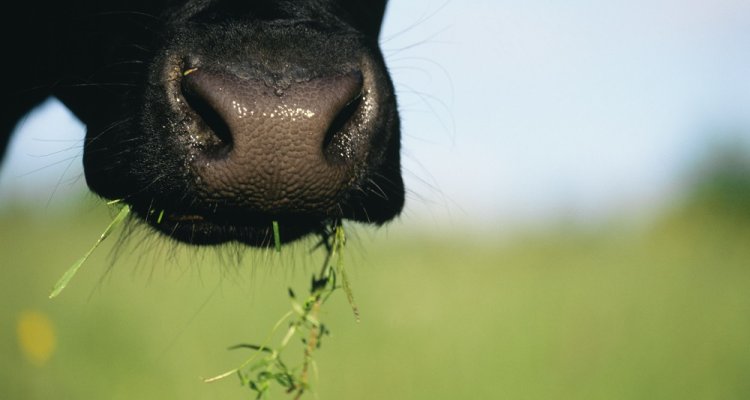
Project
GenTORE – GENomic management Tools to Optimize Resilience and Efficiency
GenTORE will develop selection and management tools for farmers to optimize the balance between cattle resilience and efficiency in a range of environments.
GenTORE will develop innovative genome-enabled selection and management tools to enable farmers to optimize the tricky balance between cattle resilience and efficiency (R&E) in a range of different and changing environments. Precision phenotyping is a core activity and will offer farmers a revolutionary approach to select the best animals for their system.
Why
In today’s modern animal agriculture there is an increasing need to balance resilience and efficiency. Animals need to be more resilient because their nutritional needs differ under different production systems and grazing environments. They also need an ability to recover from challenges like diseases which can vary across environments and farm systems. Although the importance of balancing resilience and efficiency for production purposes is clear, the problem is that it’s still difficult to measure them on research farms, and almost impossible to measure under commercial conditions. This limits the ability for animal breeders to select for resilience and efficiency and farmers to assess and manage their livestock for an optimal balance under their system.
- Unfortunately, your cookie settings do not allow videos to be displayed. - check your settings
Impact
- Enhancing innovation
- Providing applied breeding technologies and management support tools
- Creating new market opportunities
The combined research and outreach program of GenTORE will make a significant contribution to addressing the challenges facing farming in a changing and volatile world
GenTORE – Inclusive Stakeholder Involvement from the Start
GenTORE embraces a multi-actor approach across 15 countries with half the 21 Consortium members from industry including breeding associations, trans-national organizations, farm management and veterinary advisory services and farm technology companies.
These stakeholders directly engaged with GenTORE from the start, represent a core that will be enlarged with other stakeholders who are keen to bring their input and to be recipients of new technologies and data.
The inclusion of stakeholders from the beginning of the project is a major plus as it will bring in many more ideas and views. It also means all outputs will be fit for purpose and be immediately relevant to what is happening in daily practice on beef and dairy farms. They will also be more user-friendly and thus adopted rapidly and seamlessly by farmers and breeders and used long-term.
How
There will be 6 research work packages and outreach, dissemination and training are vital components throughout.
Research results that translate into on- farm tools will look at a number of areas including:
- What is needed for a multi-trait selection index, trait values, relative weights and co-variance between traits across life stages?
- Developing predictive modelling tools to enable breeders to select both appropriate livestock and adopt management strategies that can handle climate change impact
The tools developed by GenTORE will be practical and applicable across multiple cattle breeds (beef, milk and dual purpose) and systems (conventional and organic). They will help increase the economic, environmental and social sustainability of European cattle production systems for meat and milk.
Techniques will include:
- A methodological improvement of genomic analysis that uses large global genomic databases to help develop genomic predictions for R&E for cattle breeds and crosses
- New indicators for commercial on-farm phenotyping and associated data analytic tools to help develop genomic predictions for cow R&E
- New ways to measure local production that allow genotype - environment interactions to be included in genomic predictions
- An on-farm management index that actively allows farmers to adjust R&E for their farm system and evaluate the consequences of not doing so
All tools will be tested on farms.
This project has received funding from the European Union's Horizon 2020 research and innovation programme under grant agreement No 727213